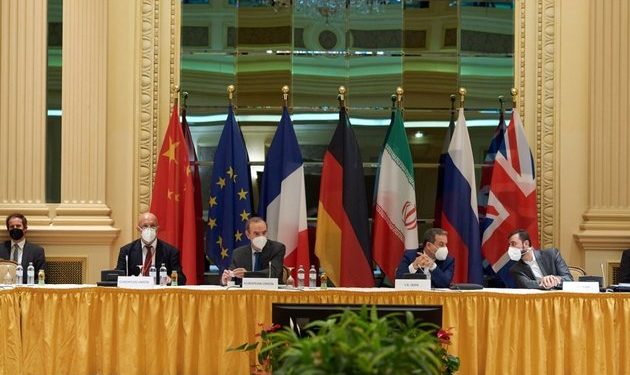Senior officials from the countries that negotiated the 2015 international nuclear agreement with Iran have met for talks focused on bringing the United States back into the landmark deal and afterward Russia and European powers gave contrasting accounts of the tasks ahead.
Officials from China, Germany, France, Russia, and Britain met May 1 in the Austrian capital, Vienna.
‘We have much work, and little time, left. Against that background, we would have hoped for more progress this week,’ senior diplomats from the so-called E3 — France, Britain and Germany — said in a statement.
Officials have said they hope to reach a deal by May 21, when an agreement between Tehran and the UN nuclear watchdog on continued monitoring of some Iranian nuclear activities is due to expire.
‘We have yet to come to an understanding on the most critical points. Success is by no means guaranteed, but not impossible,’ they added.
U.S. National Security Adviser Jake Sullivan said on April 30 that the talks were in ‘an unclear place,’ meaning it was uncertain whether they would lead to an agreement.
‘We should not expect breakthroughs in the days to come,’ Russia’s ambassador to the UN nuclear watchdog, Mikhail Ulyanov, told reporters after a meeting of the remaining parties that wrapped up the third round of talks, adding that the discussions would reconvene on May 7.
‘We need simply to continue diplomatic, day-to-day work, and we have all the reasons to expect that the outcome, [the] final outcome, will be successful and it will come quite soon, in a few weeks,’ said Ulyanov, who is one of the more optimistic voices at the talks.
The talks began last month in Vienna with the remaining parties to the deal – Iran, Russia, China, France, Britain, and Germany.
SEE ALSO: Progress Made At Iran Nuclear Talks, But More ‘Hard Work’ Needed, EU Envoy Says
The talks began last month in Vienna with the remaining parties to the deal – Iran, Russia, China, France, Britain, and Germany.
Washington pulled out of the deal in 2018 under former President Donald Trump and reimposed sanctions against Tehran. Iran responded as of 2019 by breaching many of the deal’s limits on its nuclear activities.
U.S. President Joe Biden wants to rejoin the deal, however, and a U.S. delegation in Vienna was taking part in indirect talks with Iran, with diplomats from the other world powers acting as go-betweens.
The Biden administration is considering a rollback of some of the most stringent Trump-era sanctions in a bid to get Iran to come back into compliance with the nuclear agreement, according to information from current and former U.S. officials and others familiar with the matter.
Ahead of the main talks, Ulyanov said JCPOA members met on the sidelines with officials from the U.S. delegation, but that the Iranian delegation was not ready to meet with American diplomats.
Outside the talks in Vienna, other challenges remain.
An attack suspected to have been carried out by Israel recently struck Iran’s Natanz nuclear site, causing an unknown amount of damage. Tehran retaliated by beginning to enrich a small amount of uranium up to 60 percent purity, the highest level that Iran has reached.
With reporting by AP, Reuters, and AFP






